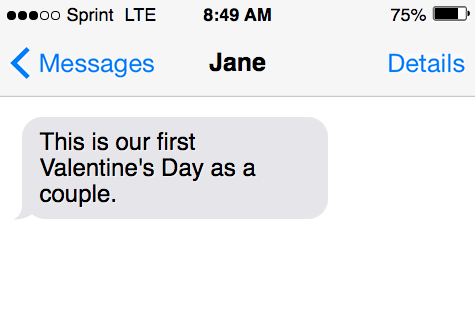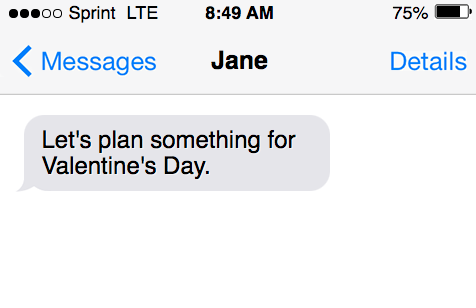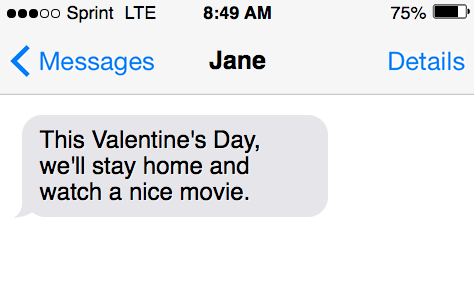Valentine’s day celebrates the importance of love and romance in life. This holiday is all about cards, gifts, red roses, and most importantly, romance. People often get confused using the apostrophe in relation to this special day of love.
Here are a few tips to help you keep the apostrophe correct in romantic notes you’ll be writing for your loved one.
The difference between “Valentine” and “Valentine’s”
Valentine’s Day is a day dedicated to Saint Valentine. The day belongs to him similar to how The Feast of Saint Patrick is popularly known as St. Patrick’s Day.
Why this day is dedicated to a particular Roman Saint named Valentine is a complicated story full of mysteries.
Some textbooks suggest that Saint Valentine united lovers who were prohibited from marrying. As young men were expected to focus on the development of their country and its army, first.

Some folklore in the US believes Saint Valentine was put into prison. And it was in prison where he healed a blind daughter of the jailer. And gave a note saying “From your Valentine” to her before passing.
While the origins can’t get officiated, any card given to a person on this day is considered a valentine. Or a Valentine’s Day card.
Grammatically, when referring to a “valentine,” this is the present participle form of the word “valentine’s.” Both are referring to the holiday. For example, in the sentence, “Will you be my valentine?”
| Word | Definition |
| Valentine (noun) /ˈvalənˌtīn/ | a card sent, often anonymously, on St. Valentine’s Day (February 14) to a person one loves or is attracted to. |
When to use “Valentine”
When to use the word “valentine.”
“Valentine” as a proper noun
The word “Valentine” can get used both as a proper and common noun depending on the context.
While referring to Saint Valentine or any other person named Valentine, the word is used as a proper noun.
Sentence examples:
- “Saint Valentine of Rome is the patron saint of romance.”
- “The day that celebrates love is dedicated to Saint Valentine.”
- “The child was christened Valentine.”
“Valentine” as an improper noun
Cards and letters exchanged on Valentine’s Day are simply called a “valentine.” The word ‘valentine’ is also used as a common noun for denoting the person who is someone’s date on the occasion of Valentine’s Day. In this case, the word’s first letter is not capitalized.
Sentence examples:
- “Thomas is preparing a valentine for his wife.”
- “She has received a lot of valentines.”
- “Is he your valentine?”
- “I’d love to be your valentine.”
You can call your significant other your ‘valentine.’ At the same time, the gift given to them is also called a ‘valentine.’
When to use “Valentine’s”
We use apostrophes to indicate when something belongs to somebody (possession). In the word “Valentine’s,” the apostrophe denotes that the proper noun valentine is possessing something here.
Use this term on Valentine’s Day. Valentine’s Day is celebrated on the Saint’s anniversary associated with courtly love.
Remember, Saint Valentine is a Roman saint of the 3rd century. The 14th of February is celebrated as the Feast of St. Valentine or, more popularly, Valentine’s Day. Commemorating his association with romance and courtly love.

The apostrophe is used in the name of the holidays dedicated to a specific individual or relation.
For example, St. Peter’s Day, Teacher’s Day, Mother’s Day, Father’s Day, etc. Similarly, the day celebrating love is observed in memory of Saint Valentine that is why the day belongs to him and is called Saint Valentine’s Day.
In the modern world, it is just known as Valentine’s Day.
Sentence examples:
- “This is our first Valentine’s Day as a couple.”
- “Let’s plan something for Valentine’s Day.”
- “This Valentine’s Day, we’ll stay home and watch a nice movie.”
- “Tomorrow is Valentine’s Day.”
What is the plural of “Valentine’s Day”?
The plural of “Valentine’s Day” is “Valentine’s Days.” This can be used while referring to more than Valentine’s Day.
For example, the sentence, “Last three Valentine’s Days were disasters, this year we’ll plan something nice.” Here the speaker is referring to three Valentine’s Days. That’s why the plural form is used.
“Valentines” is the plural of the improper noun valentine used to indicate the gifts exchanged on the occasion of Valentine’s Day or the lovers.
Use of “valentines” in a sentence:
“Juliana has received a bunch of valentines this year.”
This means that Juliana has received a bunch of presents on the occasion of Valentine’s Day.
What is the correct plural spelling of Valentine’s Day?
“Valentine’s Days” is the correct plural spelling of Valentine’s Day.
The terms “Valentines’ Day” or “Valentines Days” are incorrect and should not get used as the plural for Valentine’s Day.

How to remember the difference between “Valentine” and “Valentine’s”
The words are pronounced the same but are used differently in sentences.
The day of celebration of love and romance is named Valentine’s Day. Never spell it as “Valentine’s Day.”
Remember that the holiday belongs to the Saint named Valentine. The apostrophe gets while mentioning the holiday since it possesses and “owns” Saint Valentine.
On the other hand, valentine’s is a plural form for the noun valentine.
This word refers to the people someone is romantically involved with or the presents and cards given to them on the occasion of Valentine’s Day.
Sources:
- “Have Your Gifts Ready! Is It “Valentine’s Day” Or “Valentines Day”?“
- “Is It Valentine’s Day or Valentines Day?”
- “Apostrophe Tips: Valentine’s Day or Valentines Day?”
- “Valentine vs Valentine’s Day“
- Valentine’s Day
- “Valentines or Valentine’s – How to Spell Valentine’s Day“
- https://www.macmillandictionary.com
Inside this article
Fact checked:
Content is rigorously reviewed by a team of qualified and experienced fact checkers. Fact checkers review articles for factual accuracy, relevance, and timeliness. Learn more.
Core lessons
Glossary
- Abstract Noun
- Accusative Case
- Anecdote
- Antonym
- Active Sentence
- Adverb
- Adjective
- Allegory
- Alliteration
- Adjective Clause
- Adjective Phrase
- Ampersand
- Anastrophe
- Adverbial Clause
- Appositive Phrase
- Clause
- Compound Adjective
- Complex Sentence
- Compound Words
- Compound Predicate
- Common Noun
- Comparative Adjective
- Comparative and Superlative
- Compound Noun
- Compound Subject
- Compound Sentence
- Copular Verb
- Collective Noun
- Colloquialism
- Conciseness
- Consonance
- Conditional
- Concrete Noun
- Conjunction
- Conjugation
- Conditional Sentence
- Comma Splice
- Correlative Conjunction
- Coordinating Conjunction
- Coordinate Adjective
- Cumulative Adjective
- Dative Case
- Determiner
- Declarative Sentence
- Declarative Statement
- Direct Object Pronoun
- Direct Object
- Diction
- Diphthong
- Dangling Modifier
- Demonstrative Pronoun
- Demonstrative Adjective
- Direct Characterization
- Definite Article
- Doublespeak
- False Dilemma Fallacy
- Future Perfect Progressive
- Future Simple
- Future Perfect Continuous
- Future Perfect
- First Conditional
- Irregular Adjective
- Irregular Verb
- Imperative Sentence
- Indefinite Article
- Intransitive Verb
- Introductory Phrase
- Indefinite Pronoun
- Indirect Characterization
- Interrogative Sentence
- Intensive Pronoun
- Inanimate Object
- Indefinite Tense
- Infinitive Phrase
- Interjection
- Intensifier
- Infinitive
- Indicative Mood
- Participle
- Parallelism
- Prepositional Phrase
- Past Simple Tense
- Past Continuous Tense
- Past Perfect Tense
- Past Progressive Tense
- Present Simple Tense
- Present Perfect Tense
- Personal Pronoun
- Personification
- Persuasive Writing
- Parallel Structure
- Phrasal Verb
- Predicate Adjective
- Predicate Nominative
- Phonetic Language
- Plural Noun
- Punctuation
- Punctuation Marks
- Preposition
- Preposition of Place
- Parts of Speech
- Possessive Adjective
- Possessive Determiner
- Possessive Case
- Possessive Noun
- Proper Adjective
- Proper Noun
- Present Participle
- Prefix
- Predicate



